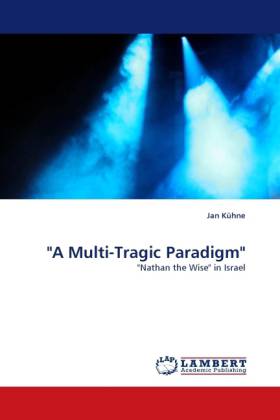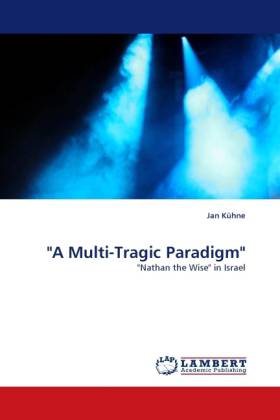
- Afhalen na 1 uur in een winkel met voorraad
- Gratis thuislevering in België vanaf € 30
- Ruim aanbod met 7 miljoen producten
- Afhalen na 1 uur in een winkel met voorraad
- Gratis thuislevering in België vanaf € 30
- Ruim aanbod met 7 miljoen producten
Zoeken
€ 93,45
+ 186 punten
Omschrijving
Written on the eve of the French Revolution, Gotthold Ephraim Lessing's dramatic poem "Nathan the Wise" became a paradigm for modern Jewish identity in nineteenth- and early twentieth-century Germany and Eastern Europe. According to the Israeli theatre scholar Gad Kaynar, there is hardly anything more absurd than to speak about the reception of Lessing in Israel, (Lessing Yearbook 2000). This distinguished M.A. thesis attempts to do precisely that. Through personal interviews, hitherto inaccessible archive material, and the study of a broad range of documents and articles, it presents a fascinating overview of the reception of "Nathan the Wise" in Israel. Describing the personal stories underlying productions by Shimon Finkel, Joseph Zur, Joshua Sobol, and Doron Tavory, this original research offers insight into over forty years of Israeli history and its changing relationships with Germany and Austria. The book contains the first-time publication of the play "Signed with Blood, or: Bloody Nathan," an adaptation of Lessing's poem by the renowned Israeli dramatist, Joshua Sobol.
Specificaties
Betrokkenen
- Auteur(s):
- Uitgeverij:
Inhoud
- Aantal bladzijden:
- 184
- Taal:
- Engels
Eigenschappen
- Productcode (EAN):
- 9783844307306
- Verschijningsdatum:
- 15/03/2011
- Uitvoering:
- Paperback
- Afmetingen:
- 150 mm x 11 mm
- Gewicht:
- 262 g

Alleen bij Standaard Boekhandel
+ 186 punten op je klantenkaart van Standaard Boekhandel
Beoordelingen
We publiceren alleen reviews die voldoen aan de voorwaarden voor reviews. Bekijk onze voorwaarden voor reviews.








